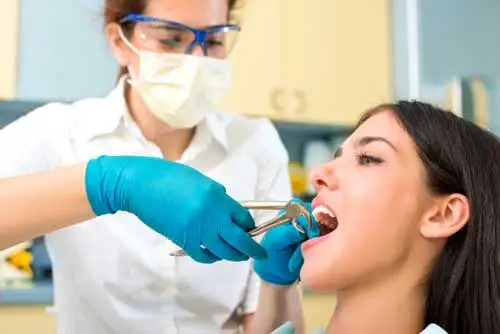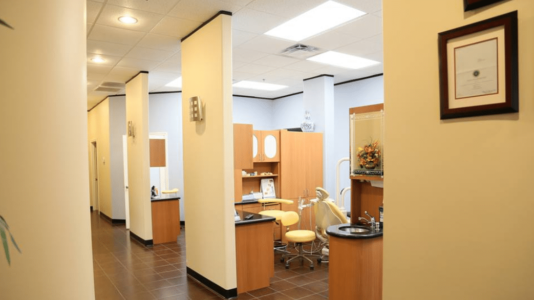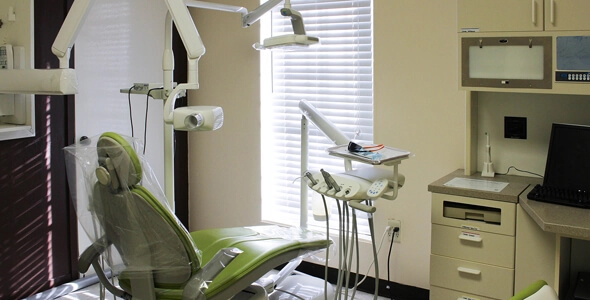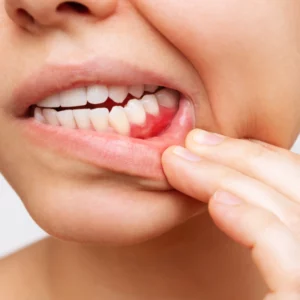Everything You Need to Know about Tooth Extraction
Most dental professionals agree that it’s best to try to salvage the natural tooth whenever possible. Unfortunately, in some cases, a tooth is decayed or damaged beyond repair and extraction becomes necessary.
Tooth extraction is just one of the many dental services offered at A Dental Care in Houston. Our dentists have the experience and expertise to care for your smile at all stages of life.
In this article, we’ll explain more about tooth extraction, the common reasons for it, how it’s done, and proper aftercare instructions to ensure a smooth recovery.
What is Tooth Extraction?
Tooth extraction is the process of removing a problem tooth. There are two types of tooth extraction:
- Simple: the tooth is loosened and pulled from the socket
- Surgical: the tooth is cut from the socket
Common Reasons for Tooth Extraction
There are several common reasons for tooth extraction, including:
Severe Tooth Decay
In the case of tooth decay, typically other treatments such as dental fillings, crowns, or root canal therapy are offered first. These procedures are designed to salvage the natural tooth. However, in some cases, these procedures do not work because the damage/decay is too extensive.
Advanced Gum Disease
Gum disease is usually the result of poor oral hygiene habits and is one of the leading causes of tooth loss. If caught early, gum disease can be treated and, in many cases, reversed. However, if it is not treated early enough, it could progress and cause significant oral health issues. If you have advance gum disease, the dentist may recommend having your teeth extracted and replacing them with dentures.
Wisdom Teeth
Your wisdom teeth are not necessary and usually create more problems. Therefore, dentists typically recommend removing them, especially if they are impacted or already causing other issues. Many times, this is a surgical extraction because they are removed before they erupt.
Overcrowding
In the case of overcrowding, a few teeth may need to be extracted. This will create space for the remaining teeth to shift into their appropriate positions within the jaw. This is often used as an alternative to or in conjunction with orthodontic procedures.
Tooth Extraction Procedure
The tooth extraction procedure depends on the type of extraction being performed. In both cases, the dentist will start by administering local anesthesia to numb the area around the affected tooth. If necessary, sedation may be used for patients who have dental anxiety or who are unable to be still for an extended period of time.
Simple Extraction Procedure
The affected tooth/teeth will be rocked back and forth to loosen it from the socket.
Surgical Extraction Procedure
In some cases, a simple extraction is not possible due to the severity of the decay or other complications. In this case, a surgical extraction will be performed. An incision will be made in the gum to allow the dentist to access the tooth root. The tooth will then be cut from the socket.
How long does recovery from a tooth extraction take?
Recovery from a tooth extraction procedure primarily depends on the complexity of the extraction. A surgical extraction usually requires more recovery time than a simple extraction. This also depends on your oral care and lifestyle habits. If you are a smoker or if you do not follow proper oral care habits, your recovery will take longer- and your risk of infection and other complications is increased.
Most people feel back to normal and are able to return to their routine within 72 hours.
However, it’s important to note that it will take several weeks for the jawbone to completely heal. If you are planning on replacing the tooth with a dental implant, you can discuss the option of immediate implants with the dentist during your consultation or you can wait a few months for the jawbone to heal.
Care After Tooth Extraction
In order to facilitate healing and ensure a smooth recovery, you’ll want to carefully follow the aftercare instructions provided by the dentist. The specific instructions may vary from one dentist to another, but the general recommendations are as follows:
Take all medications as prescribed
You may be given antibiotics to prevent infection, as well as pain relievers to manage any pain/discomfort. Make sure that you take these as directed. If needed, you may also use OTC pain relievers such as ibuprofen or acetaminophen.
Avoid strenuous activities for at least 2 days
Strenuous activity can cause an elevated heart rate, which can increase bleeding and/or discomfort. Therefore, avoid working out for at least 48 hours, possibly 72. Ask the dentist how long you should wait. When you do start increasing your activity levels, start slowly.
Always clean the extraction site clean
Carefully rinse with an antimicrobial mouthwash 2 to 3 times daily for the first few days following extraction. You can brush your teeth, but avoid direct contact with the extraction site, as this could cause the clot to dislodge. When you do start brushing over it, make sure to use a soft-bristled brush and be gentle with the area.
Visit A Dental Care Today for Your Tooth Extraction
If you have a tooth that is damaged/decayed that you think might need to be extracted, schedule your visit with A Dental Care today! We have five offices across Houston to serve you and your family.
Our dentists are here to provide a variety of preventive, cosmetic, and restorative procedures. We understand that dental issues don’t wait until regular office hours which is why we are available 24 hours a day, 7 days a week for dental emergencies.












